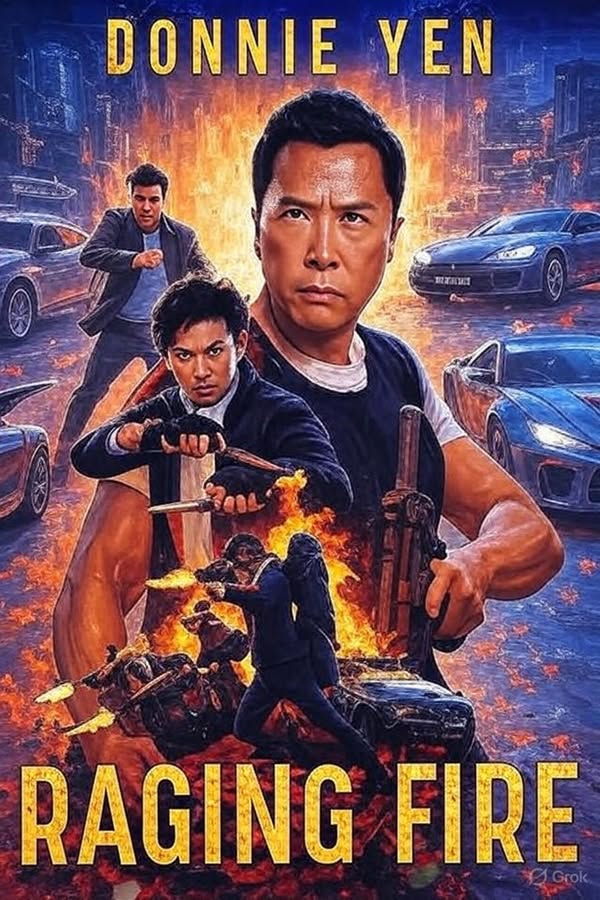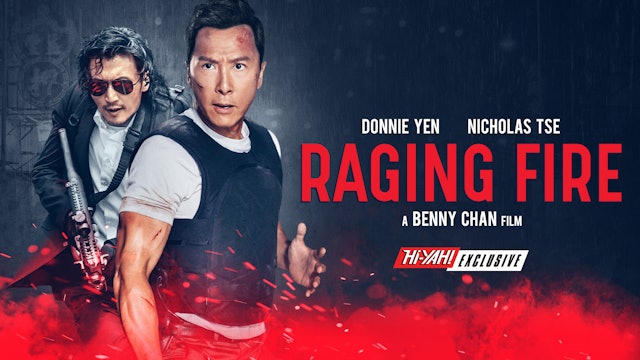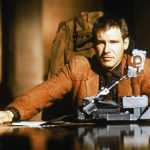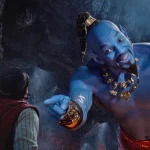🚨 Raging Fire – The Line Between Right and Ruthless

Related Movies:
Related Movies:
Related Movies:
🎬 Raging Fire (2021) — When Justice Collides with Vengeance
Exploring Honor, Betrayal, and the Fragile Line Between Right and Ruthless
In a cinematic landscape often filled with over-the-top heroism or morally ambiguous antiheroes, Raging Fire (怒火) emerges as a strikingly grounded action thriller that dares to examine justice not as an absolute, but as a contested battlefield. Helmed by the late and legendary Benny Chan in his final directorial project, Raging Fire is more than just a gritty Hong Kong action film—it is a thematic crucible where ethics, loyalty, and vengeance combust into a violent storm.
Anchored by the intense performances of Donnie Yen (as Cheung Sung-bong) and Nicholas Tse (as Yau Kong-ngo), the film unravels the psychological war between two men who once stood side by side as brothers in arms, now pitted against each other by diverging beliefs and life-altering betrayals.

I. A Conflict of Ideals
At the heart of Raging Fire lies the philosophical conflict between Cheung, an old-school cop who operates with a strict moral compass, and Yau, his disillusioned former protégé, whose sense of justice has been corroded by systemic betrayal and personal tragedy. This thematic duel mirrors a broader existential dilemma: When the system fails those sworn to protect it, is vengeance justifiable?
Cheung is emblematic of the classical Confucian ideal of integrity—lawful, disciplined, and morally upright. His refusal to compromise, even at the cost of camaraderie, makes him a pariah among those who believe in expedience over ethics. Yau, conversely, is shaped by his fall from grace—a once-promising officer betrayed by the very institution he served. His descent into crime isn’t driven by greed, but by a warped sense of justice and a desire to expose the hypocrisy of the system.
“You still believe in justice?” Yau snarls at Cheung in a pivotal moment. “Justice failed me.”
Their confrontation is not just physical; it’s ideological—a brutal debate over what justice means in a corrupt and broken world.
II. Benny Chan’s Swan Song: Grit, Glory, and Guts
Benny Chan, known for action-heavy blockbusters like New Police Story (2004) and Shaolin (2011), passed away before the release of Raging Fire, leaving behind a film that serves as both a tribute to classic Hong Kong action cinema and a culmination of his career’s thematic obsessions.
Chan’s directorial finesse is evident in how he frames not just the fights, but the emotional aftermath of violence. In Raging Fire, action isn’t just spectacle—it’s consequence-laden narrative. Each bullet fired and every fist thrown reverberate with emotional weight. Chan strips away glorified invincibility, allowing his characters to bleed, hesitate, and break down, both physically and morally.
The set pieces—ranging from claustrophobic alleyway shootouts to high-speed pursuits through neon-drenched cityscapes—are choreographed with old-school Hong Kong realism. Donnie Yen, also the action director, integrates his signature close-quarter combat style with grounded brutality, opting for tension and stakes over flashy acrobatics.

III. Donnie Yen as Cheung Sung-bong: Duty, Honor, Isolation
Donnie Yen’s portrayal of Cheung is a masterclass in restrained intensity. While often celebrated for his martial prowess, Yen here turns inward, portraying a man who has sacrificed everything for the rule of law, only to find himself increasingly isolated.
Yen’s Cheung is not a one-dimensional crusader. He’s a weary soldier—haunted by the lives he couldn’t save, disappointed by a system that rewards compromise, and emotionally distant from a team that no longer shares his ideals. Yen captures this moral loneliness in a performance full of nuance: the long silences, the tight-jawed restraint, and the barely contained frustration at a world that no longer reflects his values.
In a powerful subplot, Cheung’s relationships are dissected—not only with Yau but with his fellow officers and superiors who treat his code of honor as outdated idealism. This forms the emotional scaffolding of the narrative: a man too moral to survive in a corrupt world, but too stubborn to yield.
IV. Nicholas Tse as Yau Kong-ngo: The Heartbreaking Villain
Nicholas Tse delivers what might be his career-defining performance as Yau Kong-ngo—a villain who refuses to be labeled as one. What makes Yau terrifying is not just his tactical brilliance or ruthlessness, but his emotional logic. He is not evil for evil’s sake. He is broken, hurt, and convinced that systemic justice is a myth.
Yau’s backstory—a promising officer scapegoated for a failed mission, imprisoned, and left to rot by his mentors—adds layers of pathos to his character. His motives, while extreme, are understandable, and Tse plays him with a combustible mix of charisma and rage. His interactions with Cheung oscillate between nostalgic affection and lethal intent, making their final showdown as tragic as it is thrilling.
Yau’s moral decline poses a chilling question: If someone who once believed in justice can be pushed this far, who’s really to blame?

V. Cinematic Craft and Technical Brilliance
Technically, Raging Fire is a standout. The cinematography by Chan Chi-ying balances urban grittiness with poetic framing—tight close-ups that capture inner turmoil, and wide-angle shots that showcase Hong Kong as both a city and a metaphor for moral collapse.
The editing by Curran Pang keeps the pacing taut without sacrificing emotional beats. Action sequences are interspersed with moments of reflection, and no scene feels superfluous. The film’s sound design deserves special mention—each gunshot, punch, and explosion is viscerally felt, enhancing the immersive quality of the action.
Composer Chan Kwong-wing provides a haunting score that blends orchestral themes with electronic undertones, heightening both tension and tragedy.











